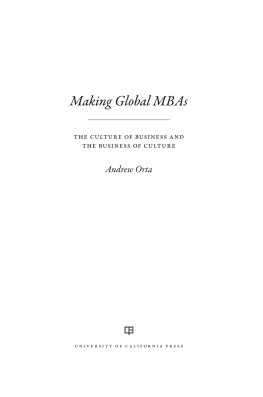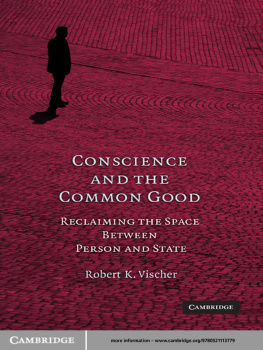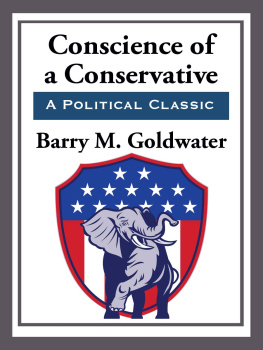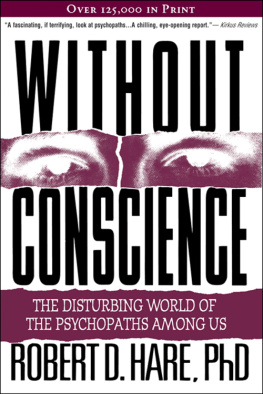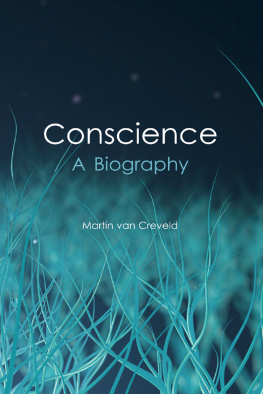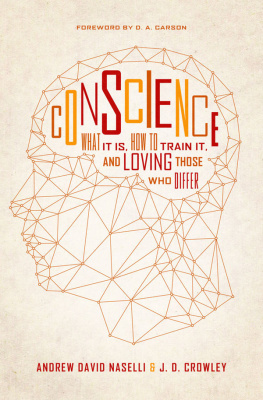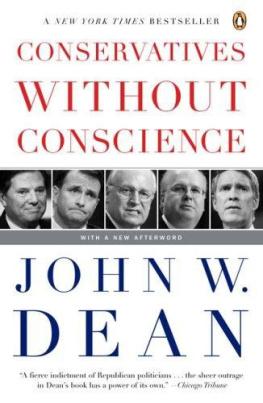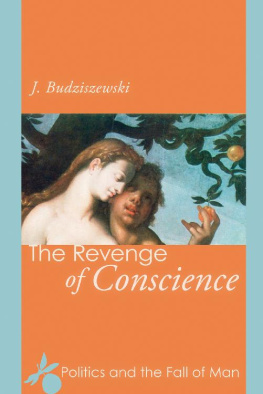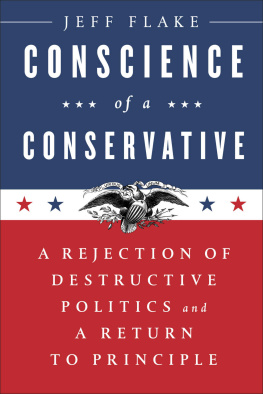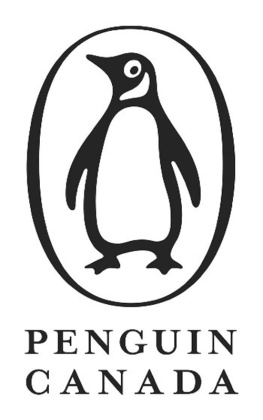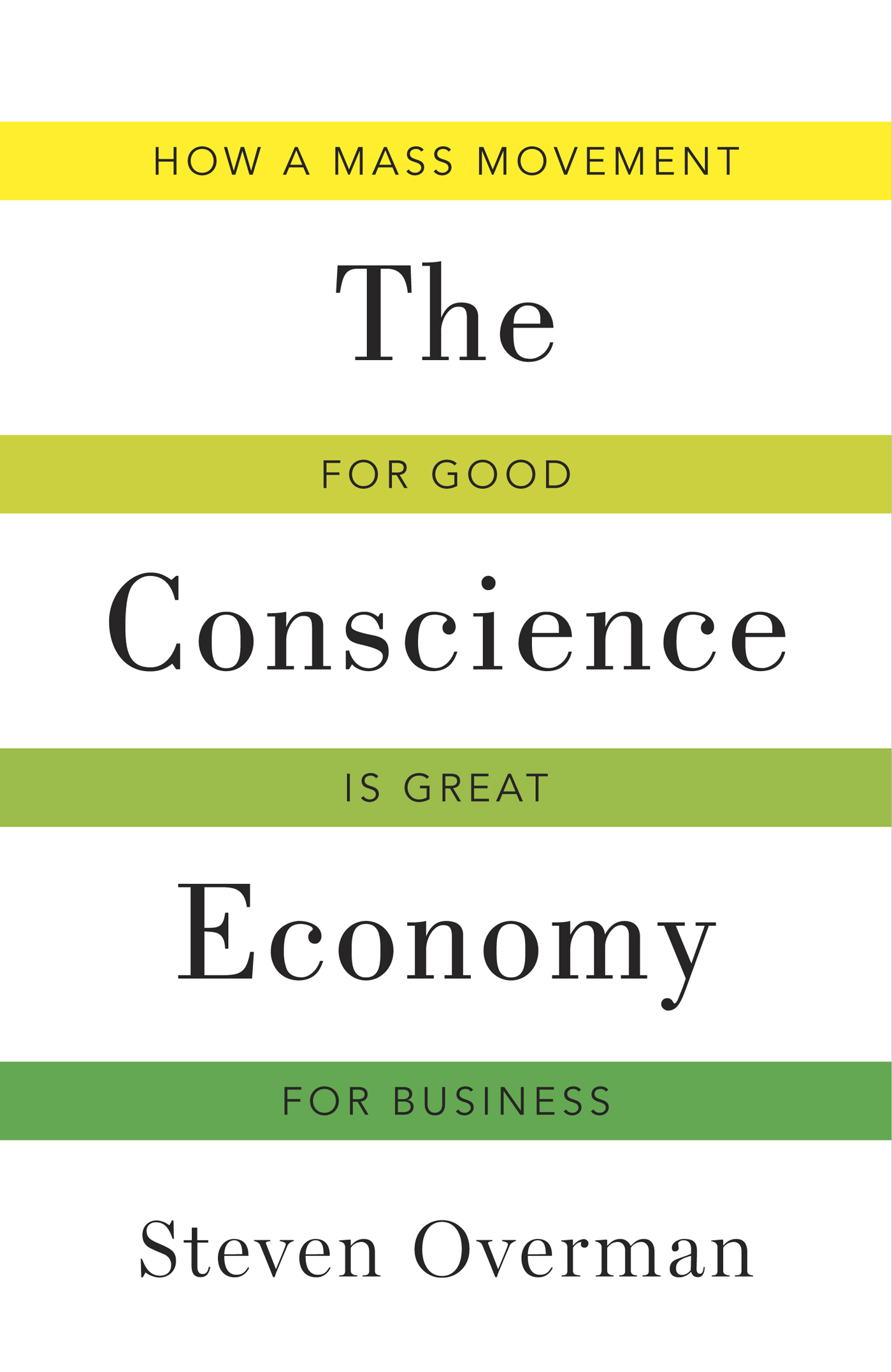First published by Bibliomotion, Inc.
39 Harvard Street
Brookline, MA 02445
Tel: 617-934-2427
www.bibliomotion.com
Copyright 2014 by Steven Overman
All rights reserved. No part of this publication may be reproduced in any manner whatsoever without written permission from the publisher, except in the case of brief quotations embodied in critical articles or reviews.
Library of Congress Cataloging-in-Publication Data
Overman, Steven.
The conscience economy : how a mass movement for good is great for business / Steven Overman.
pages cm
Summary: The Conscience Economy will help international leaders, influencers, investors and decision-makers to manage, innovate and thrive in a new world where doing good matters as mush as doing well.Provided by publisher.
ISBN 978-1-62956-012-0 (hardback) ISBN 978-1-62956-013-7 (ebook) ISBN 978-1-62956-014-4 (enhanced ebook)
1. Social responsibility of business. 2. Social entrepreneurship. 3. Economic developmentSocial aspects. I. Title.
HD60.O93 2014
658.4'08dc23
2014023615
For Lily, who will inherit the future we all create
Praise for
The Conscience Economy
and Steven Overman
Brilliant! Overmans keen observation of emerging trends in technology, social awareness, and astute consumerism deconstructs the tired canard that business is pitted against its community, employees, or society. The Conscience Economy objectively builds an overwhelming case that a companys brand derives its relevance, power, and vulnerability from the sum of the firms actions.
Jeff Clarke, CEO, Kodak
A compelling read, like a travelogue full of observations that invite us to experience profound changes happening across different cultures around the world. Our company is focused on protecting and connecting people to the things that matter most, so Overmans connectivity points ring especially true for me. The Conscience Economy is full of provocative insights, fresh ideas, and practical advice for any business.
Jerri DeVard, chief marketing officer, ADT Security
I love the energy of The Conscience Economy and the inevitable truths that Overman so masterfully weaves into every page. Overman takes us on a journey into the myriad ways in which this growing awareness is already shaping our world and has the potential to create a new reality where every business conducts itself in a fundamentally different way. A must-read for everyone who is considering how they can steer themselves and their business towards a more sustainable and balanced world.
Alex Willcock, CEO, VisualDNA
The Conscience Economy makes a rich, compelling case for why its no longer just enough to do wellif we want to succeed in life, we also have to do good. Whether youre motivated by conscience or profit, this book will show you how you can tap into the Conscience Economy to grow your business, create a positive impact in the world, and wake up smiling.
Nathalie Nahai, author, Webs of Influence
Steven Overman, in his unparalleled energetic style, introduces us to the rise of the Conscience Economy. Full of bold ideas and useful advice, The Conscience Economy is a provocative read suggesting that businesses and brands should stand out as emblems of all that the emergent culture holds dear.
Dominque Lauga, PhD, senior lecturer, Cambridge Judge School of Business
Overman maps out an insightful and provocative play book for businesses looking to make an impact and succeed in the hyperconnected culture of tomorrow.
David Fanger, SVP, Moodys Investors Service.
I was at a dinner in Cambridge, Massachusetts, recently with a dozen Harvard/MIT/Princeton faculty/researchers/directors. Very bright, very switched on people involved in important, even groundbreaking, work.
About dessert time, the discussion coalesced to the big question that inevitably haunts big thinkers: How do we solve the really big problems? Everyone was depressed that life on the planet was obviously getting worse. And they were frustrated, even angry, that the legacy players were failing. Why wasnt Obama able to solve our problems? The UN? The World Bank? The Gates Foundation?
I wish Steven Overman had been at my side at that dinner, as he was during the early days at Wired in the 90s. At Wired, we created a unique intelligence operation masquerading as a magazine that reported on the exploding Digital Revolution. Our specialty was roaming across the horizon of the future and bringing back fresh kill for our readers. We jokingly called it Revolution of the Monthso much of the world was being remade, from business to politics, from education to entertainment, from energy to health, from religion to sexas the middlemen were disintermediated and power devolved as digital tools became more widespread and influential. We embraced this revolution with optimism: our motto was Change Is Good.
But we didnt just report on the revolution, we helped make it happen. At Wired, we pioneered web media, creating the first website with original content and Fortune 500 advertising. We invented the banner ad, and then helped start an agency to sell and create those ads, because it didnt exist yet. Wired Ones launched the first blog as we now know it, setting off the earthquake that traditional journalism never recovered from. We created the first website, the Netizen, that reported on a presidential election. Then we fought the governments attempt to spy on citizens and businesses communications via the Clipper chip, and became named plaintiffs in the lawsuit that overturned the unconstitutional Communications Decency Act.
From Wired, Steven went on to spread the Digital Revolution across the planet, helping to build what was, at the time, the biggest, most innovative cell phone company in the world. So when he speaks of change, he speaks from a position of authority as one who has been in the trenches of the revolution from San Francisco to cyberspace, from Helsinki to Mumbai, from Beijing to Cape Town.
Its little wonder I wish Steven had been at that dinner. He would have taken strong exception to the guests pessimism and told them, wait, in the first place, all metrics indicate that the world isnt getting worse, its actually getting better, even if problems remain. And that yes, while the legacy players may be failing, a new paradigm is emerging that offers the possibility of making an even better world.
Then Steven would have raised the real question everyone should have been asking that night, which isnt How do we solve the really big problems? but Just who is this we? For Steven, the we isnt the government, the NGOs, or the supra-national institutions, which are becoming increasingly ineffectual and, dare we say it, obsolete. The we is, in fact, us.
Because in the twenty-first century, as Steven points out in his illuminating and provocative new book, weeach of us as individuals, family members, employees, entrepreneurs, managers, citizens, and consumersare together not only assuming the responsibility for making a better world, we have acquired the power to do it directly. And the economy is reshaping itself around that reality. Steven calls it the Conscience Economy.
The signs, Steven points out, are all around us. Companies are reshaping themselves to be more responsible, value-driven, and transparent, proudly telling us how their product is made, that they are good custodians of the environment, that their relationships with all their stakeholders are ethical. In effect, they are internalizing conscience as an integral part of their business practices, and they are informing consumers about it in their advertising and marketing, and on the labels of the products they selland not because of government pressure, but because doing good is actually good business. Or as Steven puts it: Goodness is the wellspring of profit.



